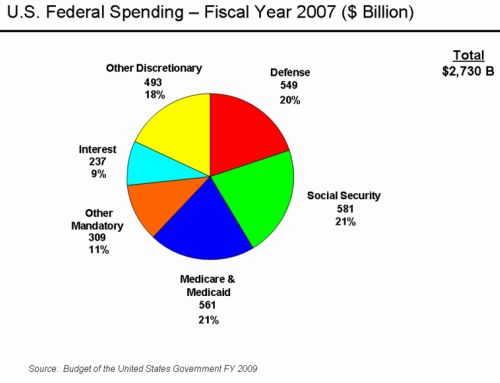Firms Keep Lobbying as They Get TARP Cash
By ELIZABETH WILLIAMSON and BRODY MULLINS
WASHINGTON -- Troubled financial institutions and the Detroit auto makers continue to spend heavily on lobbying Congress while accepting billions of dollars in U.S. government money, reports to Congress suggest.
General Motors Corp. spent $3.3 million on lobbying in the fourth quarter of 2008, a period that coincides with the government committing $13.4 billion to the ailing auto maker under the Treasury's Troubled Asset Relief Program. In all of 2008, GM spent $13.1 million on lobbying, down from $14.3 million in 2007. GM's reported lobbying expenses for 2008 were only slightly less than combined spending by Ford Motor Co. and Chrysler LLC.
"Lobbying is the transparent and effective way that GM has its voice heard on critical policy issues...that companies should not be required to forfeit if they receive federal funding," said GM spokesman Greg A. Martin, who added that no funds lent from the Treasury would be used for lobbying.
TARP Participants
Review a full list of the banks participating in the TARP.
Bank of America Corp., whose heavy losses prompted it to appeal to the government for a second bailout this month, spent $4.1 million on lobbying last year, nearly $1 million more than in 2007. The bank spent $820,000 on lobbying in the last quarter, about one-fifth less than in the third quarter. Bank of America is in line to receive a total of $45 billion from the government, including $20 billion committed by the Treasury this month.
Merrill Lynch & Co., which was acquired by Bank of America Jan. 1 at the government's urging, spent $1.2 million on lobbying in each of the last two quarters, and $4.7 million for the year, $280,000 more than it spent in 2007. Merrill's losses last year were another reason why Bank of America appealed for a second injection of taxpayer money.
"Our last year numbers reflect to some degree costs resulting from our merger with Countrywide," said Shirley Norton, a spokeswoman with Bank of America. "We are now reducing our lobbying expenses...consistent with bank-wide efforts to reduce expenses."
When the U.S. placed government-sponsored mortgage giants Fannie Mae and Freddie Mac into federal conservatorship in August, the two entities, once among the financial services industry's biggest lobbying spenders, were required to stop lobbying. In October, American International Group Inc., which is nearly 80% held by the government, said it would voluntarily stop federal lobbying after criticism from Congress. But Congress has placed no similar restraints on other recipients of taxpayer money, though some lawmakers favor that.
"Clear restrictions must be imposed on firms receiving assistance," said Sen. Dianne Feinstein (D., Calif.). "These include tougher reporting requirements, lobbying prohibitions, and a ban on lavish and unnecessary expenditures," she said.
Lobbying spending by GMAC LLC, GM's auto- and mortgage-lending arm, more than tripled to $4.6 million in 2008 from 2007. GMAC has received $6 billion in government money to help stave off a financial crisis. GMAC has suffered heavy losses in its mortgage unit, Residential Capital LLC, or Rescap. GMAC spent $1.5 million on lobbying in the fourth quarter, about $400,000 less than in the previous quarter. GMAC is 51% owned by private-equity firm Cerberus Capital Management LP, which also controls Chrysler.
Toni Simonetti, GMAC's vice president for global communications, said the firm spent more on lobbying last year because it was lobbying on more issues than before. "I think it's obvious that the increased spending on Washington-related activities was related to the environment and the restructuring that we are going through," she said.
Chrysler spent $1.2 million on lobbying last quarter, and $1.9 million on lobbying in the third quarter. The White House committed $4 billion in loans to Chrysler in December.
"There has been significant demand from legislators and government officials for education and information on Chrysler," said Mary Beth Halprin, a company spokeswoman.
Ford spent $1.9 million on lobbying in each of the last two quarters. It spent $7.7 million on lobbying for all of 2008, about $600,000 more than in 2007. Ford's Washington spokesman Mike Moran said that although the company didn't take government money and says it doesn't need it now, it joined the other two domestic auto makers in pressing for a government rescue. "Should one of the other companies falter, that would have an impact on the entire auto industry," he said.
Congressional filings show that lobbying by American International Group, which the government took control of in September, continued in the fourth quarter, despite the government's holding 78.8% of the company. Congressional filings show that AIG spent $1.08 million in the fourth quarter. AIG's 2008 lobbying spending was $9.5 million, $1 million less than in 2007.
AIG spokeswoman Christina Pretto said the company's fourth-quarter figures include spending on state-level lobbying and trade-association activity. AIG stopped federal lobbying after criticism by Congress in October, which was the reason for the 2008 decline in spending, she said. The company continues to lobby on insurance issues and legislation at the state level, but activities must be approved by the company's general counsel and chief regulatory and compliance officer, she said.
In October, after the Wall Street Journal reported that AIG was lobbying states for more favorable interpretations of a law that would place new controls on mortgage originators, Sen. Feinstein and Republican Sen. Mel Martinez of Florida introduced legislation that would ban recipients of taxpayer money from lobbying. The two lawmakers are seeking sponsors for a House version of the bill.
—Louise Radnofsky contributed to this article.![[tarp]](http://s.wsj.net/public/resources/images/OB-CY762_tarppr_D_20090115211916.jpg)
![[Ins and Outs]](http://s.wsj.net/public/resources/images/NA-AV440_BANKLO_NS_20090122204014.gif)

